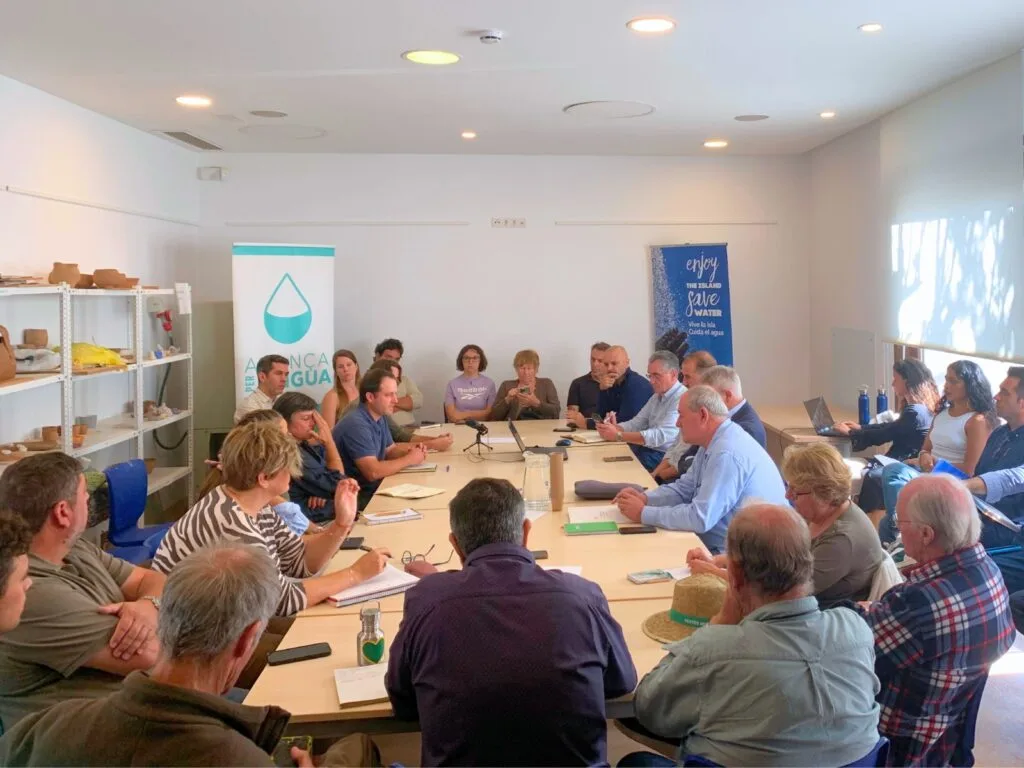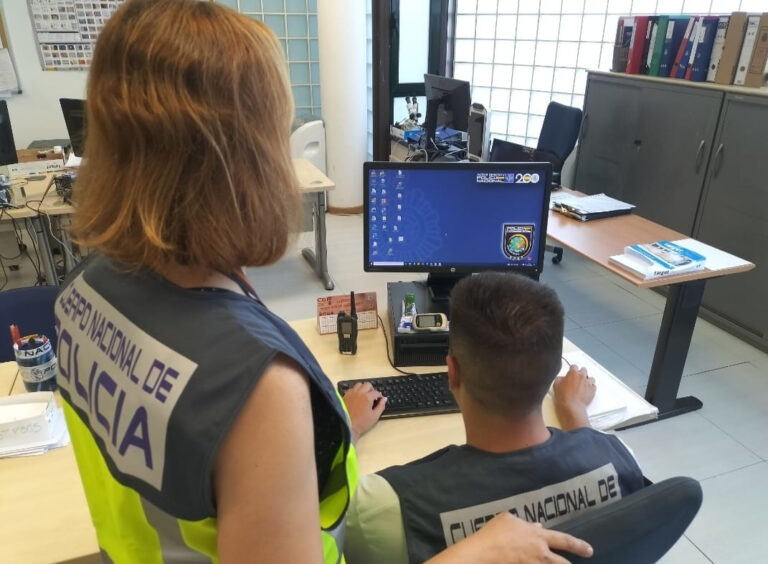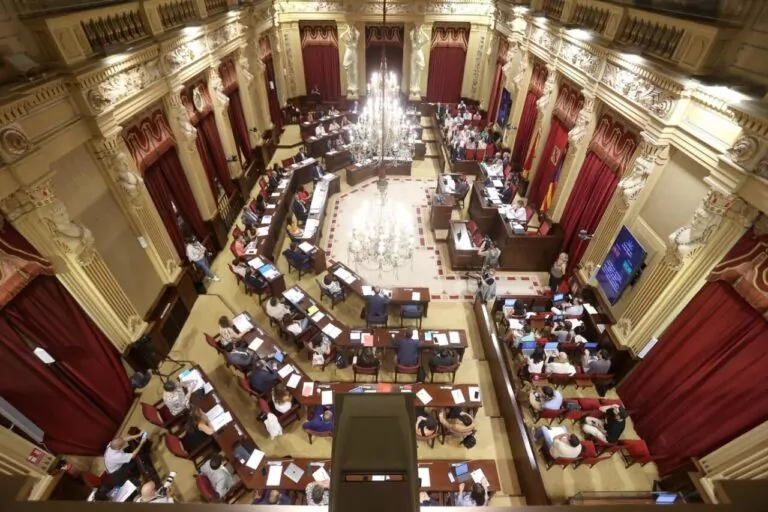The debate on the need for a fourth desalination plant on the island of Ibiza has generated a clear disagreement between the administrations and the social and environmental organizations participating in the Water Dialogue Table, held on Tuesday and convened by the Alianza por el Agua. While the representatives of the Govern and the Consell defended the infrastructure as necessary to meet the current demand, most conservationist and social organizations expressed their rejection because they consider that it could encourage new urban growth and aggravate the pressure on natural resources.
During the meeting, which brought together more than 30 representatives of environmental associations, the primary, tourism and business sectors, as well as regional and local government officials, the organizations insisted that the priority should be to improve the management of existing water rather than to build new plants. Specifically, they called for accelerating actions to reduce losses in municipal networks, maximizing the use of desalinated water in winter and promoting the reuse of treated water for agricultural and urban purposes.
The organizations, including Friends of the Earth, GEN-GOB, Salvem sa Badia and the Institute of Ibizan Studies, warned that the new desalination plant “would only serve to justify more tourism and urban development”, instead of addressing the underlying problem: overcrowding and overexploitation of aquifers. In this sense, they called for establishing clear limits to urban and tourist growth, and moving towards a more sustainable model that guarantees water supply without compromising ecosystems.
For their part, the representatives of the Government, including the general director of Water Resources, Joan Calafat, and the manager of the Balearic Water Agency, Emeterio Moles, asked for “patience” and recalled the actions underway, such as the expansion of the Santa Eulària desalination plant, the remote control of wells and the implementation of regeneration plants in three treatment plants on the island. They also stressed that the municipalities already prioritize the use of desalinated water and are working on the renovation of networks to reduce leaks.
Natural solutions to floods and droughts
In addition to the discussion on the desalination plant, the Bureau addressed other urgent challenges related to water management on the island, especially the consequences of the recent floods and the persistent drought.
The organizations agreed that Ibiza needs nature-based solutions to improve the resilience of the territory. Among the proposals, they highlighted the restoration of Ses Feixes del Prat de Vila, the renaturalization of torrents and the implementation of agroforestry measures to absorb and infiltrate water during heavy rainfall events, thus reducing the risk of damage in urban areas.
These actions, the participants explained, would make it possible to make better use of rainwater and relieve pressure on aquifers, while helping to preserve ecosystems of high environmental value. In this sense, they insisted that water management should not only focus on supply, but also on restoring the natural balance of the water cycle and strengthening territorial planning to prevent emergencies.
The regional representatives agreed on the importance of these measures and stressed that pilot projects are being prepared in collaboration with the municipalities and the Consell to implement these solutions. However, the entities demanded that these actions be prioritized with the same level of urgency as hydraulic infrastructures.
The Mesa de Diálogo del Agua, which is nine years old since its creation in the middle of the 2016 drought, has consolidated itself as a meeting forum between administrations, environmental organizations and economic sectors to discuss the challenges of water on the island. However, this year’s session showed a clear vision gap between those who are committed to new infrastructures and those who advocate a change of model to curb human pressure on natural resources.










